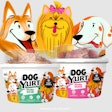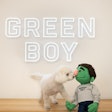“Pet product deals are private equity’s best friend.” So read the title of a November 2014 article by Lillian Rizzo in Private Equity Analyst, a newsletter, highlighted in January by the Deal Hound blog. And right on cue, as if to prove the article’s point, this week brings news of the acquisition of Partner in Pet Food (PPF), a leading private label pet food manufacturer in Europe, by private equity firm Pamplona Capital Management.
Pamplona acquired PPF from Advent International, another private equity group that had bought PPF in 2011. That seems to be just after the private equity world started noticing how well the pet food and product industry had survived the recession, according to Carol Frank, managing director of SDR Ventures, an investment bank specializing in the pet industry. “In 2008/2009, they looked back on the growth that the pet industry continued to have, even as the rest of the retailing and manufacturing world was not thriving, the pet industry was,” Frank said, quoted in a June 2014 Pet Business article by Mark Kalaygian. “So, about four or five years ago, the private-equity world really started focusing on pet.”
In the article, Kalaygian mentioned Frontenac Co. as another private equity investment firm seeking opportunities in the industry. He was prescient (or had inside information), as just a month later, Frontenac acquired Cloud Star, a manufacturer of all-natural pet treats. The deal was handled by Frank of SDR, according to Rizzo’s article, and Frontenac was not the only interested party. Of six initial indications of interest in Cloud Star, five came from private equity, Frank told Rizzo. (In January, Cloud Star merged with the Tiki brands of Petropics Gourmet Whole Foods to form Whitebridge Pet Brands.)
“Private equity firms can’t seem to get enough of pet product companies, making them some of the darlings of an already popular segment, thanks to steady, stable consumer demand for their products, even during challenging economic times,” Rizzo wrote. She included a table of pet company-private equity deals from October 2013 to October 2014, including the May 2014 acquisition of C.J. Foods, a large private label pet food manufacturer based in the US, by J.H. Whitney Capital Partners.
The table also includes the January 2014 acquisition of Phillips Pet Food & Supplies, a large pet product distributor, by Thomas H. Lee Partners. Phillips’ main competitor, Animal Supply Co., has enjoyed similar infusions of private equity investment, spurring both distributors to go on acquisition sprees of their own. Animal Supply has been particularly active recently, announcing earlier this week that it has acquired Wilson Pet Supply, after buying Kernco Distribution in December.
This consolidation on the distribution side of the pet industry has significantly narrowed the supply chain for independent pet specialty retailers, according to Kalaygian. Those retailers often seek to differentiate themselves from large pet store chains by carrying product lines—especially premium pet food brands—not sold by the large chains. And some smaller pet food companies base their business model on selling only to the independent pet retail channel. Yet the larger distributors become, the more they tend to winnow out smaller brands and products.
So, the private equity invasion seems to be having at least an indirect impact on some pet food brands in terms of distribution. How else might it be affecting the industry? For starters, it seems to be fueling product development growth, as smaller pet food companies have the resources to ramp up R&D and product launches once they receive an infusion of cash from a new private equity owner. (Witness the number of new products launched by Merrick Pet Care, owned by Swander Pace, over the past several years.)
Private equity’s crush on the pet industry also seems to be driving up (some might say, inflating) the overall value of the industry and its companies. “Demand for such companies and a limited supply of targets have pushed up purchase-price multiples and forced some private equity firms to get more creative in their quest for deals,” Rizzo wrote.
She also implied that outside interest in the industry might spark the acquisition fire in companies within the industry, citing Nestlé Purina PetCare’s acquisition of Zuke’s early last year. (She mentioned that Nestlé has been fairly quiet on the acquisition front since then, perhaps due to its dueling lawsuits with Blue Buffalo.)
Of course, there was also Mars Petcare’s blockbuster acquisition of most of the Procter & Gamble pet food business last year. And it’s not limited to pet food companies acquiring one another; related industries, such as human food, have entered the arena, such as J.M. Smucker’s deal with Big Heart Pet Brands earlier this year.
Private equity is not likely to fall out of love with pet food and products anytime soon, even if individual firms and investors come and go. As an industry insider said to me recently, these firms typically don’t get into the industry to stay, at least not with one company or acquisition; they make a deal to make money, with the intent to sell—for a higher price than they paid—when the time is right. And in most cases, the new buyer will probably be another private equity firm, as it was with the PPF deal this week.



















